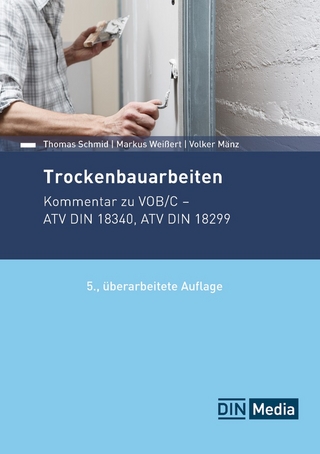
Electric, Hybrid, and Fuel Cell Vehicles
Springer-Verlag New York Inc.
978-1-0716-1491-4 (ISBN)
Vehicle efficiency improvement is sought through a combination of several approaches, including weight reduction, engine downsizing, increased engine compression ratio with high octane fuels, and the use of compression ignition engines with low octane fuels. Liquid hydrocarbon fuels are needed in applications where high storage energy density is required such as long-haul class-8 combination heavy-duty trucks. Shared mobility is another emerging concept that enables access to transportation services on an as-needed basis. This approach can enhance accessibility to transportation, decrease number of vehicles on the road, reduce energy use and impact on the environment, reduce costof transportation and the need for parking, and reduce transportation time between origin and destination. In all, the reader will receive a comprehensive introduction to electric vehicles and technology trends, including energy storage, in light-, medium-, and heavy-duty sectors, as well as the infrastructure development that will be required to realize these benefits for society.
Dr. Amgad Elgowainy is currently a senior scientist and the leader of the Electrification and Infrastructure Group at Argonne National Laboratory, providing technical guidance to a team of 20 researchers on projects covering engineering process modeling, environmental life cycle analysis, and technoeconomic analysis of alternative energy systems and fuel/vehicle technologies. Dr. Elgowainy has been serving as a technical expert on several government and auto/energy industry partnerships and has led the collaborative cradle-tograve (C2G) economic and environmental analysis of light-duty vehicles. He served as the US expert in several of the International Energy Agency Annexes on electric vehicles and large-scale hydrogen infrastructure. He is currently representing the USA in the International Partnership of Hydrogen Economy to develop greenhouse gas emissions accounting methodology for international hydrogen production certificate of origin, and is also supporting the AmmoniaEnergy Association with developing a low-carbon certification scheme for the ammonia industry. Dr. Elgowainy is co-leading the development of the environmental life cycle analysis suite of models (GREET® ) and has led the development of the hydrogen infrastructure technoeconomic suite of models (HDSAM). His models are recognized globally and used by thousands of researchers worldwide. Dr. Elgowainy earned his Ph.D. in Mechanical Engineering from the University of New York at Buffalo in 1994 and has taught many undergraduate and graduate engineering and environmental courses at University of Chicago, Purdue Northwest, Tennessee State University, and University at Buffalo. In 2020 he was recognized by DOE Secretary Achievement Award related to his role in the Integrated Energy Systems Team xiii for efforts to establish nuclear hydrogen demonstration projects. Dr. Elgowainy authored several book chapters on electrification of transportation and low carbon fuels and authored and coauthored over 130 peerreviewed publications.
Alternative Fuels for Internal Combustion Engines.- Sustainable Transportation.- Architectures of Electric, Hybrid Electric and Fuel cell Vehicles.- Batteries, Battery Management, and Battery Charging Technology.- Vehicle Traction Motors.- Hybrid Energy Storage Systems for Vehicle Applications.- Energy storage: Ultracapacitor.- Plug-in Hybrid Electric Vehicles.- AC Machines: Permanent Magnet Synchronous and Induction Machines.- Hybrid Electric and Hydraulic Technology Applications in Off-Road Vehicles.- Regenerative Braking.- Battery Technologies.- Switched Reluctance Motor Drives for Propulsion and Regenerative Braking in EV and HEV.- Vehicle Bio Fuels.- Vehicle dynamics and performance.- Vehicle Energy Storage: Batteries.- PHEVs and BEVs in Coupled Power and Transportation Systems.- Well-to-Wheel Analysis of Sustainable Vehicle Fuels.- Introduction to Electric, Hybrid and Fuel Cell Vehicles.- Fuel cell powered HEV design and control.- Electrification of medium- and heavy-duty vehicles.- Vehicle lightweighting and impact on vehicle manufacturing cycle energy and carbon intensity.- Infrastructure needs for both plug-in electric vehicles and hydrogen fuel cell electric vehicles.- Energy storage: advances in battery technology and chemistry.- Energy storage: battery recycling and cost.- Energy storage: compressed gas, cryo-compressed, and material based hydrogen storage.- Advanced engine technologies with high-octane fuels.- Advanced engine technology with low octane fuels.- New advanced biofuels for spark-ignition and compression ignition-engines.- Connected autonomous vehicles.- Shared mobility.
| Erscheinungsdatum | 25.10.2021 |
|---|---|
| Reihe/Serie | Electric, Hybrid, and Fuel Cell Vehicles | Encyclopedia of Sustainability Science and Technology Series |
| Zusatzinfo | 136 Illustrations, color; 255 Illustrations, black and white; XVII, 534 p. 391 illus., 136 illus. in color. |
| Verlagsort | New York, NY |
| Sprache | englisch |
| Maße | 178 x 254 mm |
| Themenwelt | Technik ► Bauwesen |
| Technik ► Elektrotechnik / Energietechnik | |
| Technik ► Fahrzeugbau / Schiffbau | |
| Technik ► Maschinenbau | |
| Schlagworte | Bio-based liquid hydrocarbon fuels • fuel cell electric vehicles (FCEVs) • hybrid electric vehicles (HEVs) • improving internal combustion efficiency • infrastructure needs for EVs • Plug-In Electric Vehicles (PEV) • shared mobility solutions |
| ISBN-10 | 1-0716-1491-6 / 1071614916 |
| ISBN-13 | 978-1-0716-1491-4 / 9781071614914 |
| Zustand | Neuware |
| Haben Sie eine Frage zum Produkt? |
aus dem Bereich


